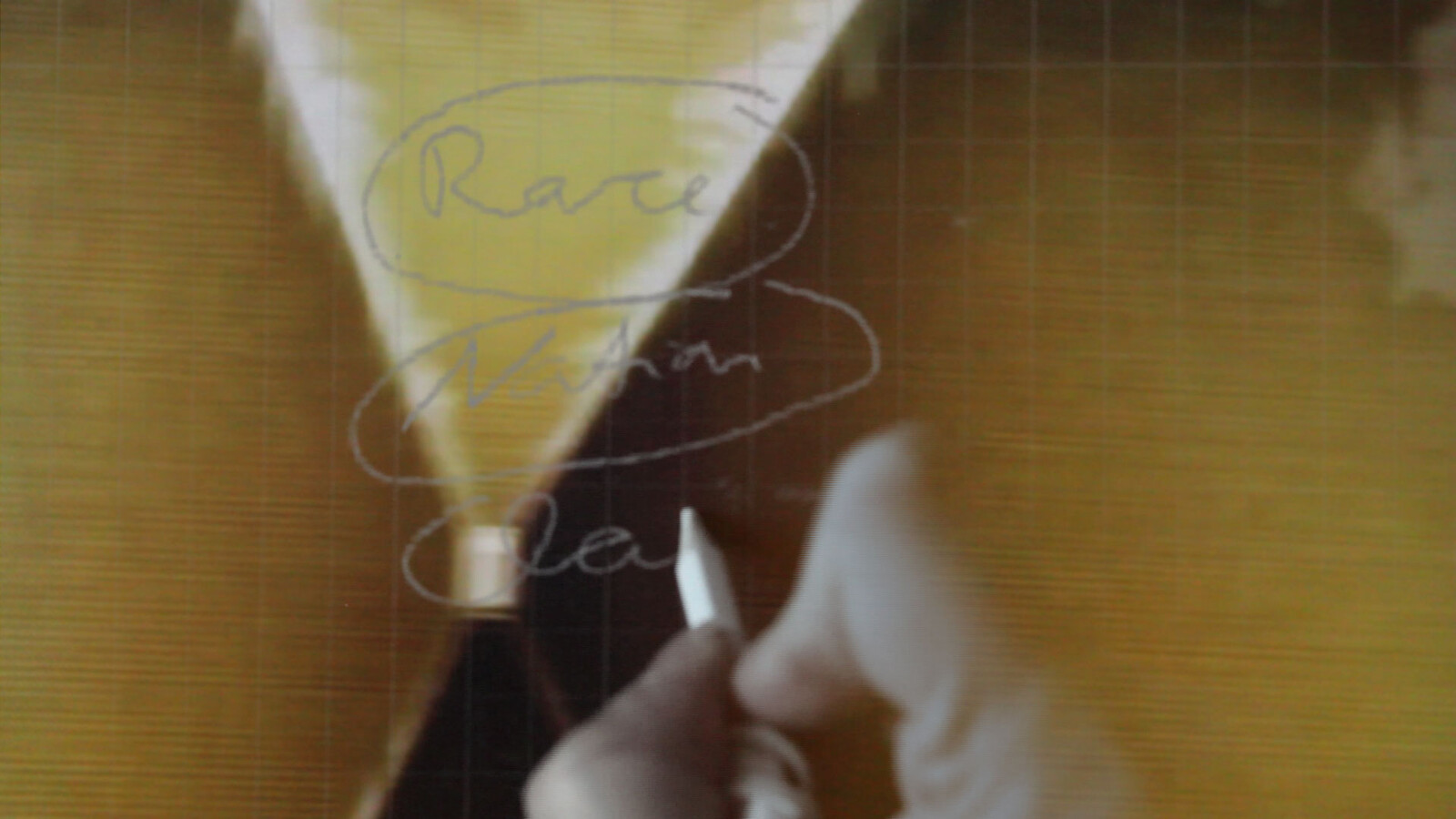John-Foster-Dulles-Allee 10
10557 Berlin
Germany
T +49 30 397870
F +49 30 3948679
info@hkw.de
The symposium runs from Thursday to Saturday
March 15–17, 2018
Free admission
Hours during the symposium
Thursday: 2–9:30pm
Friday: 10am–9:30pm
Saturday: 10am–8pm
Racism articulates itself through class relations and intensifies in nationalist currents. That is the diagnosis of the seminal volume Race, Nation, Class: Ambiguous Identities by Étienne Balibar and Immanuel Wallerstein. 30 years after it was first published in 1988, theorists and activists are called upon yet again to redefine the form this sinister triad has taken within a contemporary set of ambiguities riddled with new dilemmas and socio-political conditions.
Over the last 30 years states and societies have changed drastically, whether through the effects of global financialization on local markets, the logistical interpenetration of production and everyday life, or through new technological frameworks which present challenges to the concept of (state) citizenship. Yet despite these changes, racist structures have realigned and class structures have been transformed in kind, keeping pace with each new condition. But pushing back in opposition against these adaptations are transnational social movements such as feminist initiatives in Latin America, the Black Lives Matter movement, and the struggle for self-determination by migrants in Europe.
The three-day symposium Dangerous Conjunctures. Resituating Balibar/Wallerstein‘s Race, Nation, Class will analyze these changes with theorists and activists from a variety of perspectives. In addition to lectures by Étienne Balibar and Nilüfer Göle, many others will join the discussions at HKW: Verónica Gago, social scientist and founding member of Colectivo Situaciones in Buenos Aires; Antonio Negri, who addresses issues of globalized agency in his writings with Michael Hardt; the sociologist Zimitri Erasmus, who researches anti-racism and apartheid; the historian and literary scholar Wang Hui, who critically analyses China’s political and economic transformations; Brenna Bhandar, a legal scholar, who examines the connection between racism and land ownership in settler colonialism; and Maria Chehonadskih, a philosopher specialized in post-Soviet politics and art theory.
Since its first publication Race, Nation, Class has been translated into nine languages, sparking an intriguing variety of discussions. Authors from diverse local contexts from around the globe investigate the book’s reception and the relevance of its topics for both past and present. Their findings will be published in the reader Balibar/Wallerstein’s “Race, Nation, Class”: Rereading a Dialogue for Our Times by Argument Verlag and HKW on the occasion of the event.
In the run-up to the symposium, the researchers and filmmakers Charles Heller and Lorenzo Pezzani will produce a film in which Étienne Balibar and Immanuel Wallerstein converse with the cultural scientist Manuela Bojadžijev, illuminating the context of the book’s genesis, discuss its approach, and update central theories from today’s perspective.
With Norman Ajari, Étienne Balibar, Brenna Bhandar, Baidik Bhattacharya, Petar Bojanić, Maria Chehonadskih, Karl Dahlquist, Zimitri Erasmus, Verónica Gago, Maya Ganesh, Kelly Gillespie, Ruth Wilson Gilmore, David Theo Goldberg, Nilüfer Göle, Raquel Gutiérrez Aguilar, Wang Hui, Shahram Khosravi, Alex Taek-Gwang Lee, Sandro Mezzadra, Nasser Mufti, Antonio Negri, Ranabir Samaddar, Nishant Shah, John Solomos, Kaushik Sunder Rajan, Vanessa Eileen Thompson, Françoise Vergès, Kalindi Vora and many more.
Curated by Manuela Bojadžijev and Katrin Klingan
Reader with contributions by Norman Ajari, Rana Anani, Étienne Balibar and Immanuel Wallerstein, Manuela Bojadžijev, Petar Bojanić, Maria Chehonadskih, Karl Dahlquist, William Ellis, Andrea Fagioli, Marjan Ivković and Djurdja Trajković, Matan Kaminer, Dimitris Kousouris, Alex Taek-Gwang Lee, Nasser Mufti, Chikako Nakayama, Maurilio Pirone, Philippe Rekacewicz, Ranabir Samaddar, John Solomos, and Mark Terkessidis.
Edited by Manuela Bojadžijev and Katrin Klingan
Dangerous Conjunctures. Resituating Balibar/Wallerstein‘s Race, Nation, Class is part of 100 Years of Now, which is supported by the Federal Government Commissioner for Culture and the Media due to a ruling of the German Bundestag. Haus der Kulturen der Welt is supported by the Federal Government Commissioner for Culture and the Media as well as by the Federal Foreign Office.
Press contact
Anne Maier, Haus der Kulturen der Welt
anne.maier [at] hkw.de / T +49(0)30 39787 153

